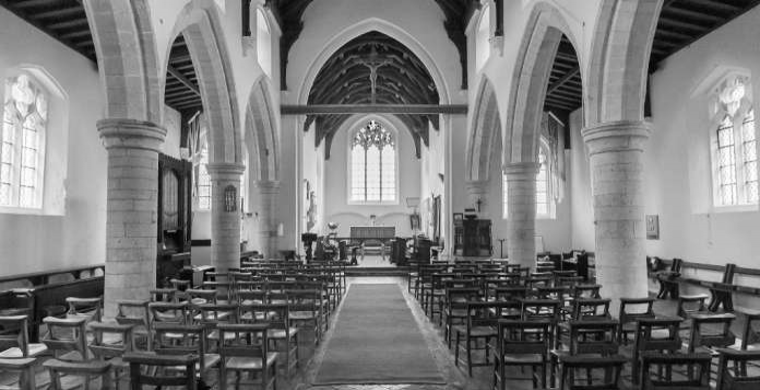Is the Church of England trying to cancel Christianity?
By Ann Bradshaw
https://conservativewoman.co.uk/
August 29, 2020
Writing in the Telegraph in May, Catherine Pepinster reflected on the state of the church in England during Covid. She felt 'teary' watching on TV Italian Catholics going to mass, and considered herself starved of comfort and inspiration because she was unable to gather with other churchgoers and worship God. She thought there was a risk that if churches did not open soon then they would not open again.
Her words gave me pause for thought. My husband and I moved to a new area two years ago. The first thing I did was look for an Anglican church. And there it was in walking distance from our new home. It was a little country church with a porch and a graveyard. I could be at home here. I imagined myself praying in the church Sunday by Sunday, growing old here, even dying here.
I looked up the Church of England 'Find a Church' website for information. The rector stated it was a genuinely inclusive church with an active commitment to social media and included families and couples who have benefited from recent changes in the marriage laws. I was unsure what that meant, but happy to be involved.
When we went to attend our first service we found the time was not as given on the website or on the board outside, but it had been changed. There was no rector either but an interim non-stipendiary and rather elderly priest in charge. It was a reasonable service with about twenty to thirty congregants. We prayed for the rector amongst others in the prayers. He did not appear although we understood he lived in the rectory next door.
This year covid struck and the church was closed. The non- stipendiary interim priest in charge retired. No services were held, and my husband and I went Sunday by Sunday on our own to pray in the churchyard. The rectory continued to be inhabited. What was happening to the church? What was happening to the rector? In July when churches were allowed to reopen, albeit socially distanced, ours remained shut. I wrote to the bishop. He said the rector had not worked for four and a half years and the bishop was trying to find cover. Meanwhile because the church was small and because of covid it would need to stay shut. A notice to this effect appeared outside the church. An online newsletter was sent out to anyone who signed up, and recently a covering vicar from another church over ten miles away wrote that he would 'walk' with the congregation until Christmas and provide a weekly online sermon, but the church was not re-opening. He gave no contact details. Meanwhile the Church of England website information on the church given by its non-working rector remains unchanged, including erroneous service times, from two years before.
This sad story does not just reflect the sorry state of this little church but of the Church of England, which does not seem to have any care or concern for the ordinary parishioner and the people it is put on earth to serve. It seems to be a story of dissembling. Is covid being used as a cover to close this little church? Is it being used as a cover to close other churches too? Our church could certainly be open for socially distanced worship with a bit of imagination and motivation, but it stays shut.
Pepinster noted a report weeks before lockdown given to church officials which she described as 'startling'. The greatest reduction in the Church of England's stock of churches since the 16th century is currently occurring. In the past 50 years 2,000 churches have closed. Would major 'hub' churches and internet churches be a replacement, she wonders? But as she points out this would be a tragedy, for churches connect us to the present 'as the beating heart of a neighbourhood', even for those who do not attend on Sundays. She ends with the words that if some churches never reopen 'that beating heart will be stilled'.
The question my experience raises for me is whether the Church of England officials are actively working toward the demise of churches? After all, is Christianity not the apotheosis of 'cancel culture'? Does it not stand for everything woke hates? And aren't the bishops desperate to be considered woke? Unlike woke, Christianity sees each person not as part of a group but as a unique individual with a unique identity. This person, created, is unlike any other person who has lived in the past or who will live in the future. He or she is not defined by any grouping or circumscribed by group thinking. Fallen humanity, nonetheless loved and redeemed. Are the bishops now ashamed and embarrassed by this truth? HM the Queen is not. At Easter she told the nation that 'Easter is not cancelled', but I am afraid my lived experience makes me feel that the Church of England is doing its best to cancel Christianity for this nation.
Dr Ann Bradshaw is a recently retired SRN and senior lecturer in adult nursing at Oxford Brookes University. She is the author of The Nurse Apprentice 1860-1977 and The Project 2000 Nurse














